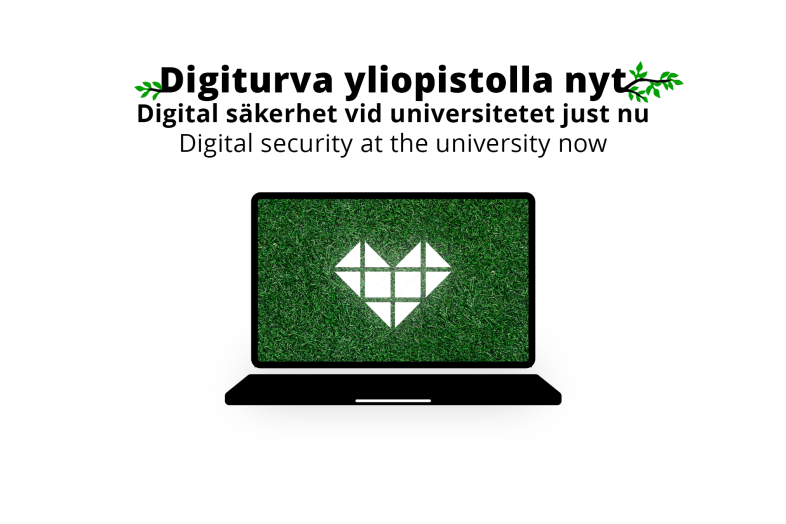Digital Security at the University Now – digital security review 2/2025

On this review:
- 1. News from the National Cyber Security Centre
- 2. Summer security checklist!
- 3. Listening and reading tips for the summer!

1. News from the National Cyber Security Centre
In this section, we gather topical content from the latest publications and reviews of the National Cyber Security Centre.
- Recently reported scams (National Cyber Security Centre’s weekly review)
- See other news from the National Cyber Security Centre on the National Cyber Security Centre website under Information Security now.
2. Summer security checklist!
- Scammers never rest, so remember to be on guard in your digital daily life, even in the summer! Especially invoicing scams are more common during holidays, as scammers try to take advantage of temporary staff. Always think twice before opening a link or attachment file! If you are at all uncertain, do not open it until you have verified the authenticity of the message from the sender using another communication medium.
- Also remember to install updates during the summer holidays! Updates protect your device against potential vulnerabilities.
- Only use long passwords and always use different passwords for different services. In addition to using passwords, enable MFA (link), as it helps protect the account even if the password has been leaked.
- Remember that the University, authorities or banks never request your sensitive information, bank credentials or passwords by email or SMS!
- As a rule, only charge the batteries of your devices on safe charging ports. Avoid public USB charging ports in particular, as they can be used to transmit malware.
IT Helpdesk is available throughout the summer:
Chat (weekdays 9 AM–3 PM, chatbot 24/7): helsinki.fi/helpdesk
Tel.: +358 29 415 5555 (weekdays 9 AM–3 PM, local network charge/mobile call charge)
E-mail: helpdesk@helsinki.fi
3. Listening and reading tips for the summer!
The best part of summer is having time to just relax – and read! Here are some reading ideas for this summer:
- Kukka, Johanna and Pekka Sauri. Ihmisyyden Rajoilla: Mitä Välillemme Jää Tekoälyn Aikakaudella ("At the Limits of Humanity. What Remains Between Us in the Age of AI"). First edition. Helsinki: Docendo, 2025. https://www.finna.fi/Record/3amk.310958?sid=5023809332
An eye-opening book about the relationship between technology, artificial intelligence and humans and the related problems. In their book, the authors discuss how artificial intelligence is changing and has already changed relationships between people.
(Tip from Helena Kelzenberg from the University of Helsinki’s information security team.)
- Salmivuori, Riku. Miljoonaperintö Tarjolla: Kuinka Verkkopetos Toimii ("A Million in Inheritance. How Online Scams Work"). Espoo: Myllylahti, 2016. https://helmet.finna.fi/Record/helmet.2251607?sid=4864574290
An easily approachable book on a topic that provides a good perspective on online scams.
(Tip from Teijo Roine, Information Security Manager at the University of Jyväskylä.)
- Adams, Douglas. The Hitchhiker's Guide to the Galaxy. 10th edition. Loisto: Otava, 2005.
This book never grows old, because the advice given – "Don't panic" – remains true and also applies to the online scams discussed above. And seriously, this is like the best book ever.
(Tip from Hanne Kesänen from the University of Helsinki IT Center's communications team.)
- You can find more reading tips in the list released by the "Korkeakoulujen tietoturvaajat" podcast.
Also, remember the "Korkeakoulujen tietoturvaajat" podcast during summer! "Korkeakoulun tietoturvaajat" is a podcast about information security at higher education institutions. We want to promote a safe digital everyday life in higher education communities – together.
Listen on Spotify or Soundcloud.